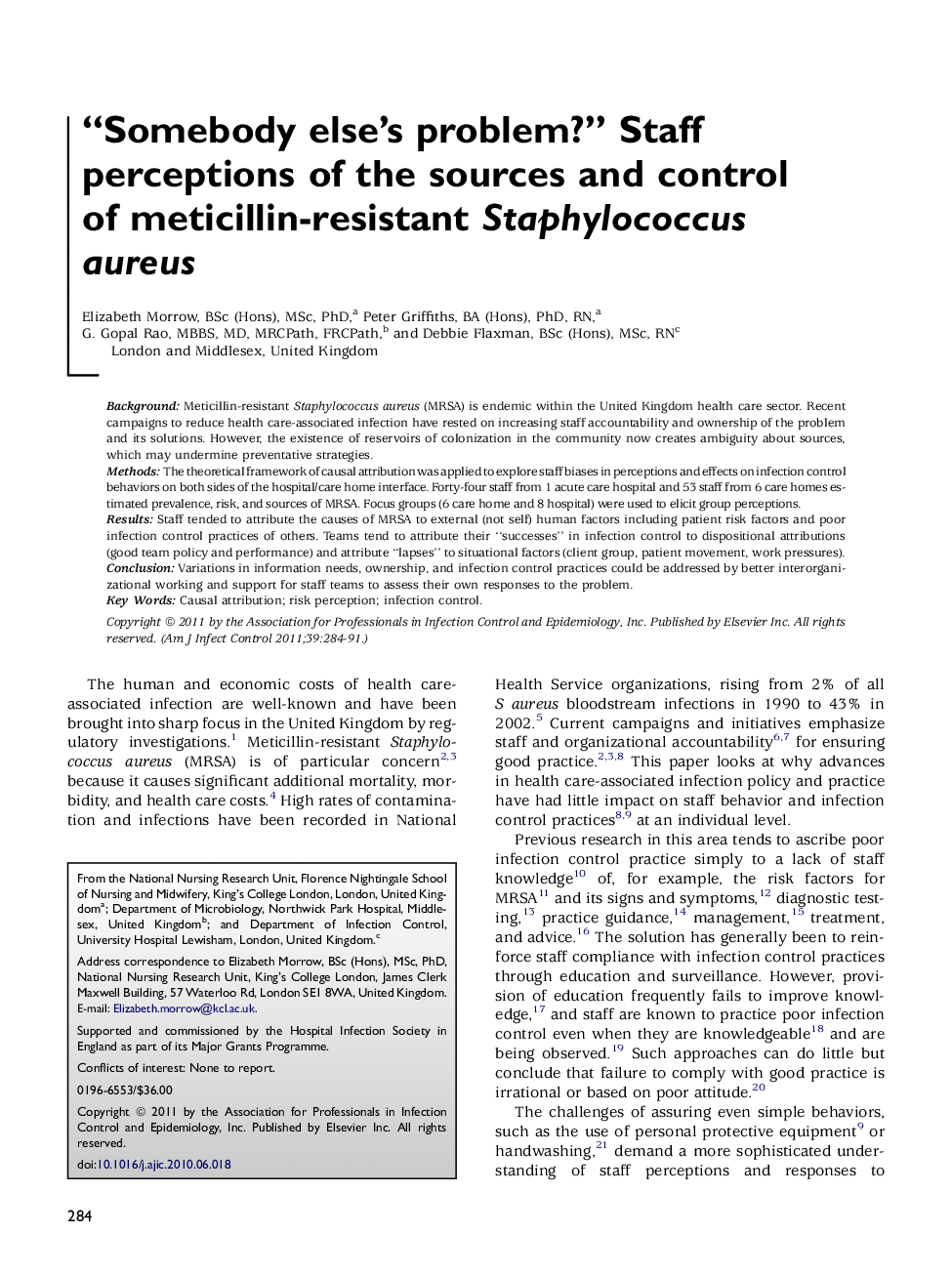| Article ID | Journal | Published Year | Pages | File Type |
|---|---|---|---|---|
| 2638273 | American Journal of Infection Control | 2011 | 8 Pages |
BackgroundMeticillin-resistant Staphylococcus aureus (MRSA) is endemic within the United Kingdom health care sector. Recent campaigns to reduce health care-associated infection have rested on increasing staff accountability and ownership of the problem and its solutions. However, the existence of reservoirs of colonization in the community now creates ambiguity about sources, which may undermine preventative strategies.MethodsThe theoretical framework of causal attribution was applied to explore staff biases in perceptions and effects on infection control behaviors on both sides of the hospital/care home interface. Forty-four staff from 1 acute care hospital and 53 staff from 6 care homes estimated prevalence, risk, and sources of MRSA. Focus groups (6 care home and 8 hospital) were used to elicit group perceptions.ResultsStaff tended to attribute the causes of MRSA to external (not self) human factors including patient risk factors and poor infection control practices of others. Teams tend to attribute their “successes” in infection control to dispositional attributions (good team policy and performance) and attribute “lapses” to situational factors (client group, patient movement, work pressures).ConclusionVariations in information needs, ownership, and infection control practices could be addressed by better interorganizational working and support for staff teams to assess their own responses to the problem.
